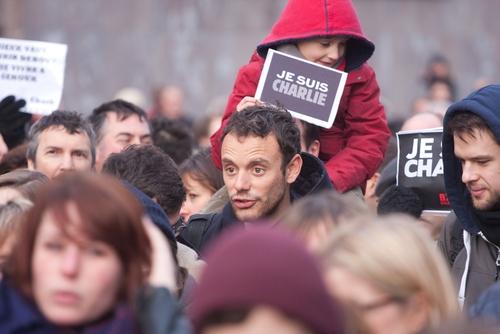Thank heavens for Peggy Noonan who so often manages, so elegantly, to articulate the meandering germs running through my brain but remaining unexpressed due to my lack of skill.
In appreciating William F. Buckley today she writes:
…When Jackie Onassis died, a friend of mine who knew her called me and said, with such woe, “Oh, we are losing her kind.” He meant the elegant, the cultivated, the refined. I thought of this with Bill’s passing, that we are losing his kind–people who were deeply, broadly educated in great universities when they taught deeply and broadly, who held deep views of life and the world and art and all the things that make life more delicious and more meaningful. We have work to do as a culture in bringing up future generations that are so well rounded, so full and so inspiring.
That’s precisely what I thought upon hearing of Buckley’s death. I wasn’t thinking of the political, but of the patrician. I too thought of Jackie Onassis and her elegance, because Buckley was all elegance, himself – in his writing, his bearing, his self-assurance and quickness. You might call it “old money” elegance, except that plenty of people from “old money” are crass and trashy, completely at-home with all that is vulgar in a very vulgar age.
The quality of elegance I’m talking about though, really has little to do with money. I might have argued, once, that it had to do with education, and perhaps – once – that was true. The people coming out of the great universities – back when they really were great institutions dedicated to the quest for understanding – would leave Yale or Oxford or the Sorbonne having been imbued with such a broadness of mind and scope of knowledge that he or she would be capable of drawing upon their exposure to art, great literature, philosophy and higher mathematics to hold forth on almost any subject, discussing even – as Ms. Noonan writes Buckley did – the subject of peanut butter, with intelligence, humor and humility.
I say humility, because that sort of education cannot help but enlighten a student as to how privileged he has been to receive it. The truly privileged, when educated rightly, understand that their good fortune in having been exposed to higher things obliges them not to insularity, but to openness. A William F. Buckley or a Jackie Kennedy may not often rub elbows with the hoi polloi, but when they did they used their best manners, because to do less would be disrespectful to the other, and demeaning to everything they had been taught by the great ones who came before. They had no difficulty engaging others outside their spheres because their security within themselves – part of which comes from that humility that recognizes the random vagaries of privilege – allowed that generosity of spirit.
But I don’t think education completely explains this quality which we see disappearing with the deaths of these sorts. Americans are – in terms of numbers, if not in real study – better educated now, than at anytime in our history, but we no longer see the graduates of Yale and Harvard emerging with thoughtful humility, having nourished on the fields of past greatness. Much of that is due to the politically correct curriculum which substitutes weak identity appreciation over strong reason, but part of it is due to our ever-fading sense of wonder and awe at anything but ourselves.
Chris Matthews, recalling that he started out as a Bill Buckley Conservative and said poignantly of Buckley:
He wrote once of a young man who stood alone in an empty church, juggling balls in the air: it was something he could do–throw balls into the air and catch them without dropping, in a swirly feat of personal mastery. As I said, it’s something he could do. It was the one thing he could offer up to God when they were, as best as he could arrange it, alone together. And all the books and columns he wrote, and all the editions of National Review he published, our great William F. Buckley, Jr. was offering up his prayer. This is what he could do.
It takes humility to juggle before God because it’s all you can do, and also takes self-knowledge and self-confidence. It also requires the security of knowing, with absolute certainty, that you were loved into being and for a purpose, which – no matter how privileged your birth or education – makes you just like everyone else.
William F. Buckley and Jackie Onassis seemed to know that, and it made them graceful and great.
It has been told that often when Buckley had a big dinner party, he’d invite a leading liberal to be a guest of honor; Buckley believed in giving attention to those with whom he disagreed. He believed he could learn from them.
Last night I posted a clip from the old Johnny Carson show. It begins with him appreciatively laughing with the post-1960 election Richard Nixon, then allowing his guests to shine in hijinks, and finally with him talking to a woman with a hen. I’ve been watching a lot of Carson lately, and marveling at him. Unlike Buckley, he was not from old money and he did not go to Yale; he was a Nebraskan boy with a quick wit and a curious mind who supplemented his U of N degree by educating himself throughout his life, reading great books and political tomes and studying astronomy, and – like Buckley -he was capable of fully engaging with his guests whether they were political thinkers, opera singers, poets, entertainers or American eccentrics. One had the sense that he knew what he knew, and was glad to discover what they knew, too, to add to his store, to enrich his own understanding. That’s the same gracefulness.
Buckley and Carson were two sides of an American coin forged when society was busily broadening its intellect and admitting all comers, when there was a sense of relishing the battle while respecting the foe, and of looking out for the little guy who might get caught between the thrusts and parries. We’re losing it. As the nation becomes more “privileged” in the superficials she is echoing empty at her depths.
The paradox of privilege is that it is meaningless when it only serves the self, when it thinks it has nothing to learn from anyone else. Buckley, I think, understood that; now he is gone. Who is left to teach it?
Obi’s Sister has a nice round-up.
Michelle Malkin’s round-up – unsurprisingly – is comprehensive











